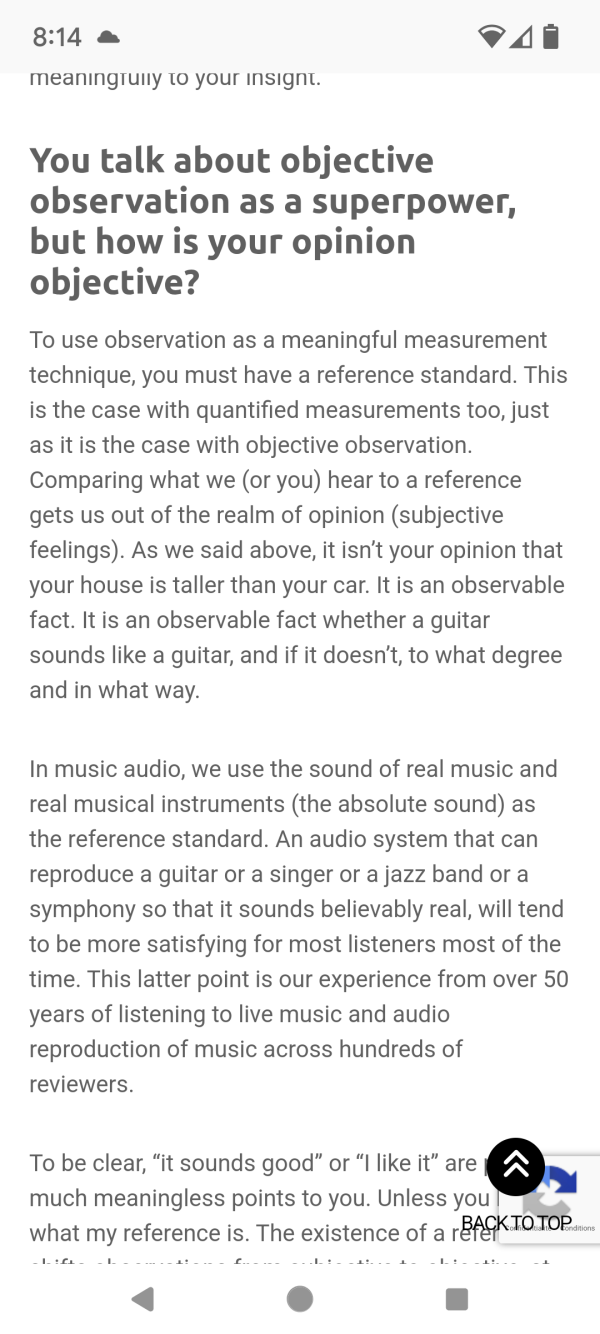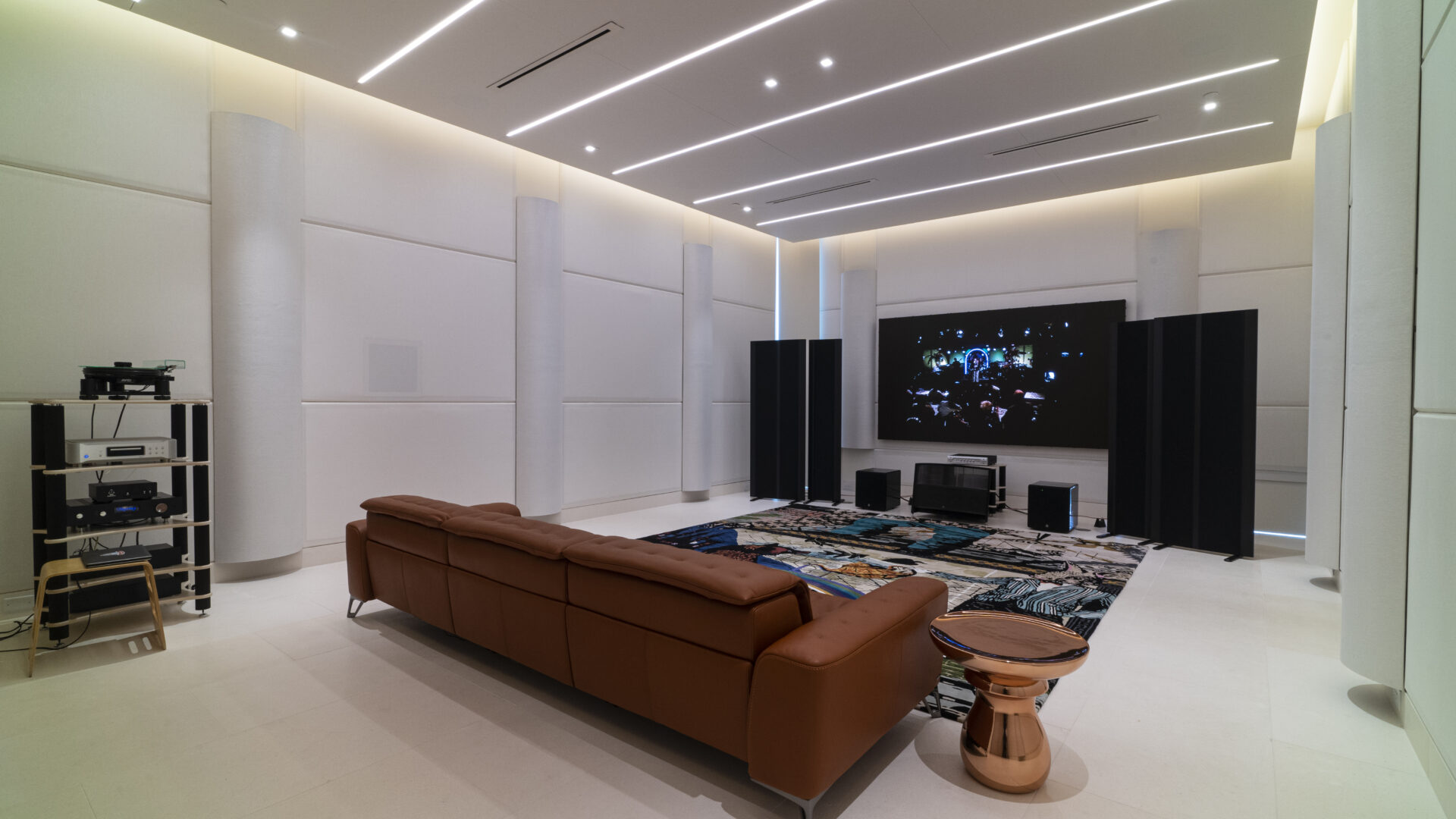I am starting this thread to question whether Tom should be describing his reporting of the M7 as a "review."
I believe that going to someone else's listening room with which you are unfamiliar and listening to a collection of components none of which are familiar and purporting to opine on the sonic attributes of one particular component in that system is methodologically invalid.
I believe that it is invalid to go to an unfamiliar room and listen to a system composed entirely of unfamiliar components and claim to isolate the sound of one of those component and characterize one's comments on that one component as a "review."
Words are useful only to the extent they help us to distinguish certain things from other things.
When I visit someone and listen to an unfamiliar system in an unfamiliar room I call it a "visit report."
Professional reviewers: when you go to listen to an unfamiliar system in an unfamiliar room and purport to report on the sonic contributions of one component in that system, please do not call it a "review." Please call it a visit report.
What do you think about this matter?
I think the above post and most of the responses to it do not establish what is 'an audio review' before determining whether the Martin video is one. The OP says "Words are useful only to the extent they help us to distinguish certain things from other things." We see some quibbling over the varietals 'review', 'in-home review', 'visit report', 'impression review'.
Having written reviews for 3 different on-line audio publications for some 21 years, I have a clear notion for myself as to what counts as an audio review and what I work to achieve when writing one. YMMV. The OP addresses one particular characteristic, namely the context in which the review listening takes place.
I believe a review needs to take place with the reviewer's system as the context. And it should take place over a fairly extended period of time. The reviewer should live with and
use the product for a minimum of one month. Typically I take 3-4 months, sometimes longer. Going somewhere else, to a dealers or a friends house, even to a so-called 'familiar system' doesn't cut it. To me a proper or true review requires the reviewer to actually use the product -- to live with it -- as well as listen to it with a variety of music over a period of time.
Of course there are other attributes to a proper expository audio review such as:
-- a description of the review system,
-- an account of using the product on a daily basis, (not someone else using or operating it.) If you review a phono cartridge, install it yourself, if speakers talk about positioning, if a DAC or streamer what parameters did you try and end up with, etc. etc.
-- basic specifications,
-- a technical description of the product at least to a high level that explains in basic terms how the product works, special features,
-- cogent sonic descriptions of at least 3-4 pieces of music selected to make specific observations about the product (not necessarily only what the reviewer likes to hear),
-- preferably at least a brief comparison to another product, and
-- basic housekeeping info such as manufacturer contact information, options, warranty and msrp.
Of course anyone can have impessions, observations, comments and critique after listening to a product/system in a familiar or unfamiliar system. Their value is a function of how adept at description is the person making them. We all have opinions but reviewing is about more than listening. Other forms of commentary (listening with friends, show reports, dealer visits, etc.) can provide helpful information.









